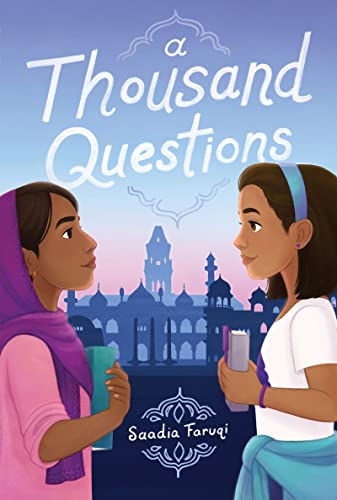Saadia Faruqi’s middle-grade novel “A Thousand Questions” centers on Mimi, a biracial Pakistani-American girl, and Sakina, the daughter of a cook in Mimi’s grandparents’ Karachi home. Over one transformative summer, the girls navigate cultural divides, family secrets, and personal dreams. Mimi, struggling with her absent father’s abandonment, secretly hopes to find him during her visit to Pakistan. Sakina, burdened by poverty and her father’s diabetes, dreams of attending school but must first improve her English to secure a scholarship. Their unlikely friendship blossoms as they swap language lessons (Sakina teaches Mimi Urdu while Mimi tutors her in English) and confront societal inequalities. The novel, praised as a South Asia Book Award Honorable Mention, vividly captures Karachi’s bustling streets, political tensions, and layered class dynamics, offering readers a window into contemporary Pakistan.
This book is a powerful tool for exploring SDG 1: No Poverty and fostering Open-mindedness and Communication. Faruqi deftly illustrates how systemic poverty shapes Sakina’s life, while contrasting it with Mimi’s relative privilege. Educators can use these contrasts to spark discussions about global inequality, ethical responsibility, and grassroots solutions.
The girls’ evolving friendship also models Open-mindedness: Mimi confronts her biases about Pakistan, while Sakina challenges her assumptions about wealth and opportunity. Their collaboration as Communicators, bridging language barriers and cultural misunderstandings, provides concrete examples of the power of speech. Teachers could pair the book with activities like writing empathy journals from dual perspectives or designing community projects addressing local poverty. Faruqi’s nuanced portrayal of Karachi’s social fabric invites readers to ask their own “thousand questions” about fairness and resilience.

